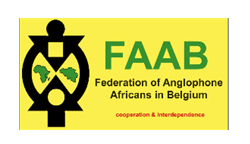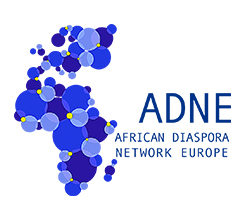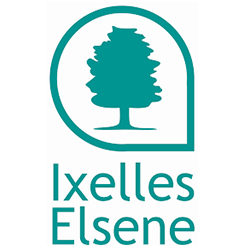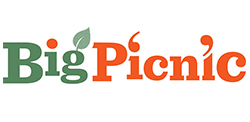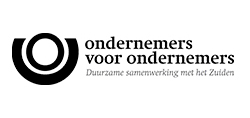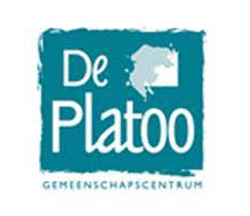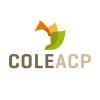The African Flavours 2018 was a success, with many foodie enthusiasts, vegetarians and vegans in attendance. The discussion session on 'how strange is the vegetarian diet in African food culture', was very interactive and informative too.
The evening started with a welcome remark and introduction by Maureen Duru-Onweni, the founder of The Food Bridge vzw. She pointed out that Africa is a vast continent with a diverse culinary history and food culture. So although meat consumption is valued, there are many plant based dishes too. Thus what is strange may not be the eating of plant based meals but some of the ideologies behind vegetarianism. Speaking further, she stated that like all concepts, there are varied arguments for or against vegetarianism in Africa. Some Africans believe vegetarianism is of African origin but has been appropriated by other cultures, while others see it as part of Asian religious practices, thus not acceptable for them. Yet there are Christians too, who use Genesis 1 verse 29 to support their stance that people were meant to be vegetarians. She concluded her presentation by stating that irrespective of what African food culture is expected to be, like all other food cultures, it will have to change and accommodate divergent food practices to remain dynamic.
The next speaker Ms Jutta Kleber of the BigPicnic project (Meise Botanic Garden), started her presentation by sharing information about the horizon 2020 Bigpicnic project of the Meise Botanic Garden and its focus on African food security. On African vegetarianism, she noted that research supports the view that Africans have a long history of plant based diets. Hence with the challenges of climate change and food insecurity, going back to eating more plant based diets are a better option. This is because much resources including land and water are needed for rearing the animals that produce meat, whereas a fraction of such resources will be needed for growing crops. Moreover, the environmental and health impact of the increasing meat consumption, also has to be taken very serious in people’s dietary choices.
Furthermore she presented different African crops (including beans, garden eggs, groundnuts,yam), that are not well known in Europe but as a result of their high nutrients can be substituted for meat. Using the African pear (ube, safou) as an example, she pointed out that it has almost all the relevant nutrients needed in a diet and the few that are lacking, can be added by eating the pear with maize. This combination as she noted has been part of the diet in many African food cultures, proving that even in ancient African food cultures, people’s indigenous knowledge chose nutritious food that was good for them.
In his presentation, Mr Steven Ngabo an African diasporan resident in Belgium, shared his personal experience as a vegan. He stated that he made the choice to stop eating meat, initially as part of healthy eating choice but also later factored in the environmental impacts of meat consumption too. For him vegetarianism is not strange to Africans, stating that his mum ate meat only once a year while growing up in Africa but on moving to Belgium, she began eating more meat. One of the challenges he encounters as a vegan is the reaction of other Africans, including family members who find his diet choice odd. He stated he still has to navigate the cultural implications of refusing to eat food prepared by someone, as that can be construed as rejecting them or their hospitality. To mitigate this, he has to constantly inform family or friends before visits or parties not to bother preparing something different, as he can eat some of the vegetables or dishes without meat. However, there has also been occasions, where he arrives at friends , only to realize that the special dishes cooked for him has no vegetables at all, only meat dishes. For him being a vegan is not odd but has been a beneficial choice as he finds it more ethical, nutritious and better for his money.
A representative of the online African food shop O’marché also presented their company and plans. Theirs is an innovative culinary project, which not only offers different ingredients and menus, but delivers these at home. Their aim is to also have a line of packaged meals prepared with fresh and nutritious ingredients in the market soon. They are now working hard to raise funds for all the tests they need , before launching their products into the European market. Samples from the O’marché line of organic drinks made from plants were also presented.
To end the discussion session, vegetarians in the audience were also given an opportunity to share their experience of being on a vegetarian or vegan diet. It was interesting to hear that for some non- Africans, they get better vegan foods travelling in Africa than they do in Europe. However, the reasons that influence the choice of a vegetarian or vegan diet seems to be the same, irrespective of the cultural background of those present. The topmost considerations for those present in making their choices are ethics, environment and health.
The evening ended with a vegetarian dinner by the catering team of The Food Bridge vzw, who served a variety of plant based dishes and drinks.
Compendium
Upcoming Events
The Helping Hand Project
In collaboration with Kwabre Ne Sekyere Belgium,Mfantesman vzw,Voice of Women International, Kente FM and other African organizations, we are organizing "The Helping Hand project",is an action started in 2016, aimed at feeding the homeless in the Brussels area. We are in need of volunteers to help with the cooking, packing and distribution of food to the homeless and needy. We are also still looking for sponsors for this project. We do not accept funds but prefer sponsorship in the form of donations of desired food items, food packaging materials. if you are interested in giving a helping hand, contact us on This email address is being protected from spambots. You need JavaScript enabled to view it.







 For the first time, two visionary women have been jointly honored as the 2025 African Diaspora...
For the first time, two visionary women have been jointly honored as the 2025 African Diaspora...  The Collective Action on Forgotten Food is calling on women artists, designers, illustrators...
The Collective Action on Forgotten Food is calling on women artists, designers, illustrators...  The Food Bridge vzw, with the support of its partners, publishes an annual Compendium...
The Food Bridge vzw, with the support of its partners, publishes an annual Compendium...  Diaspora organizations in Belgium are vibrant and diverse—spread across...
Diaspora organizations in Belgium are vibrant and diverse—spread across...  30 years ago in Beijing, women from around the world demanded equality and also made history. The...
30 years ago in Beijing, women from around the world demanded equality and also made history. The...  Registration is still open for the upcoming FAO & ICMPD event on 𝗔𝗴𝗿𝗶𝗳𝗼𝗼𝗱...
Registration is still open for the upcoming FAO & ICMPD event on 𝗔𝗴𝗿𝗶𝗳𝗼𝗼𝗱... 